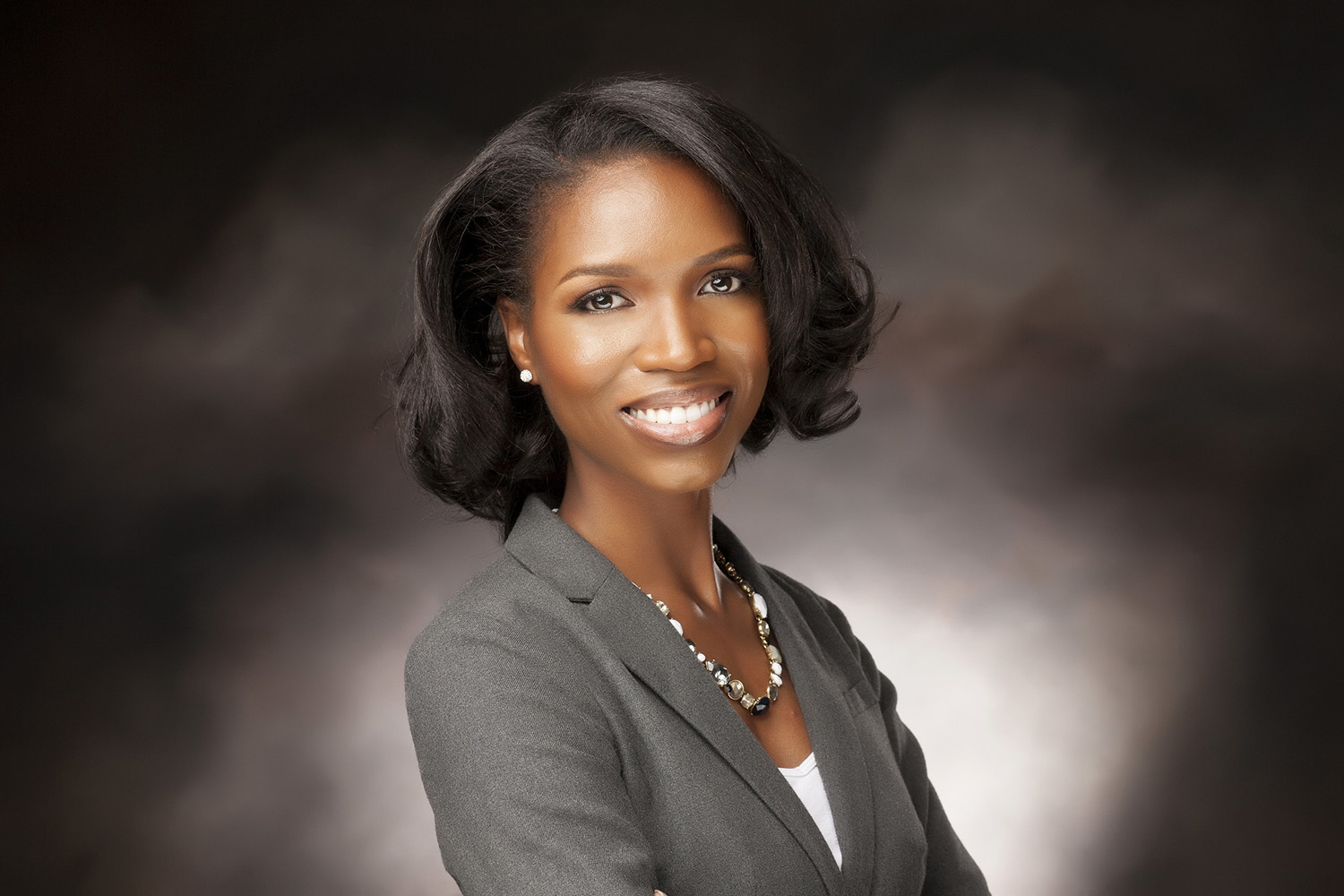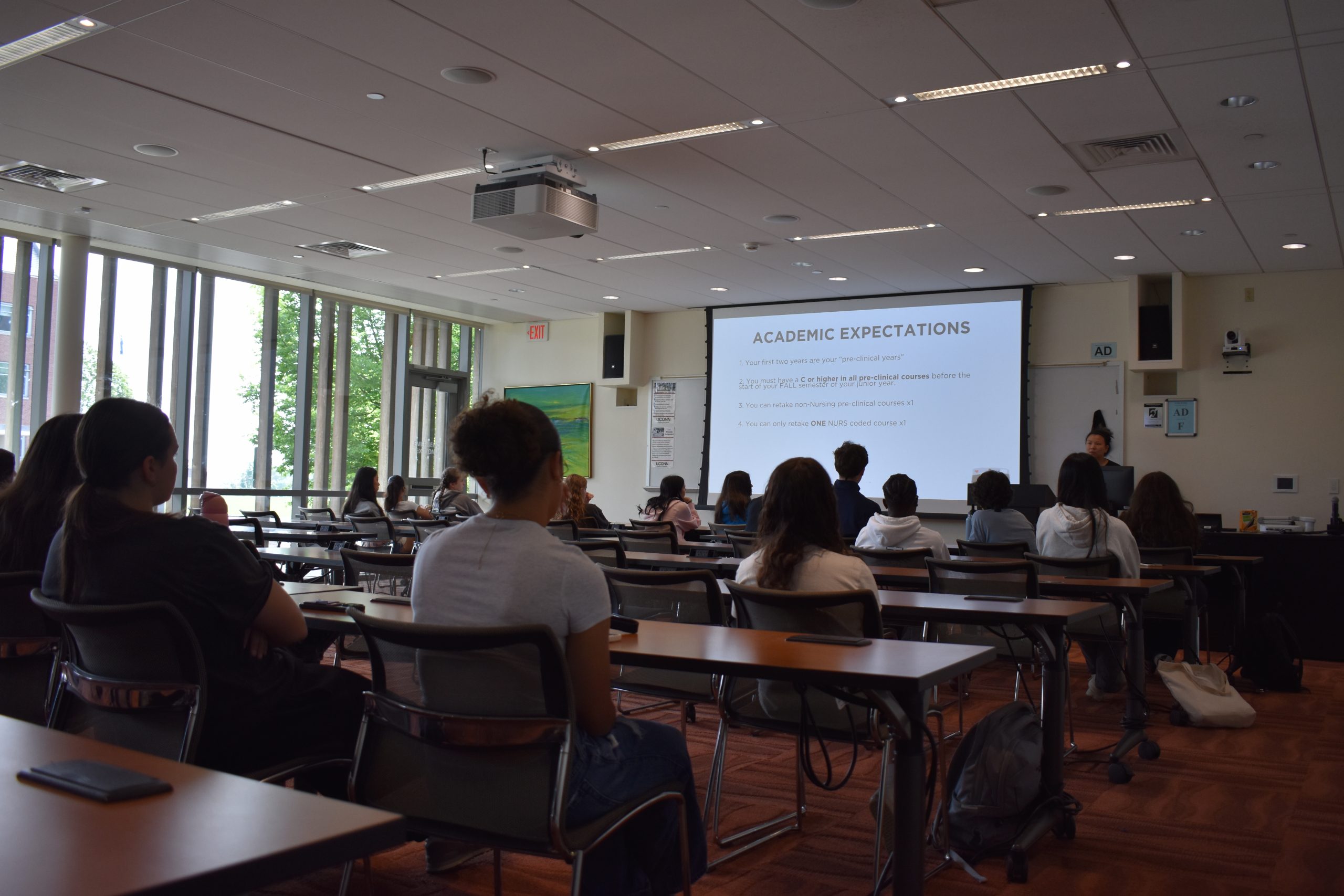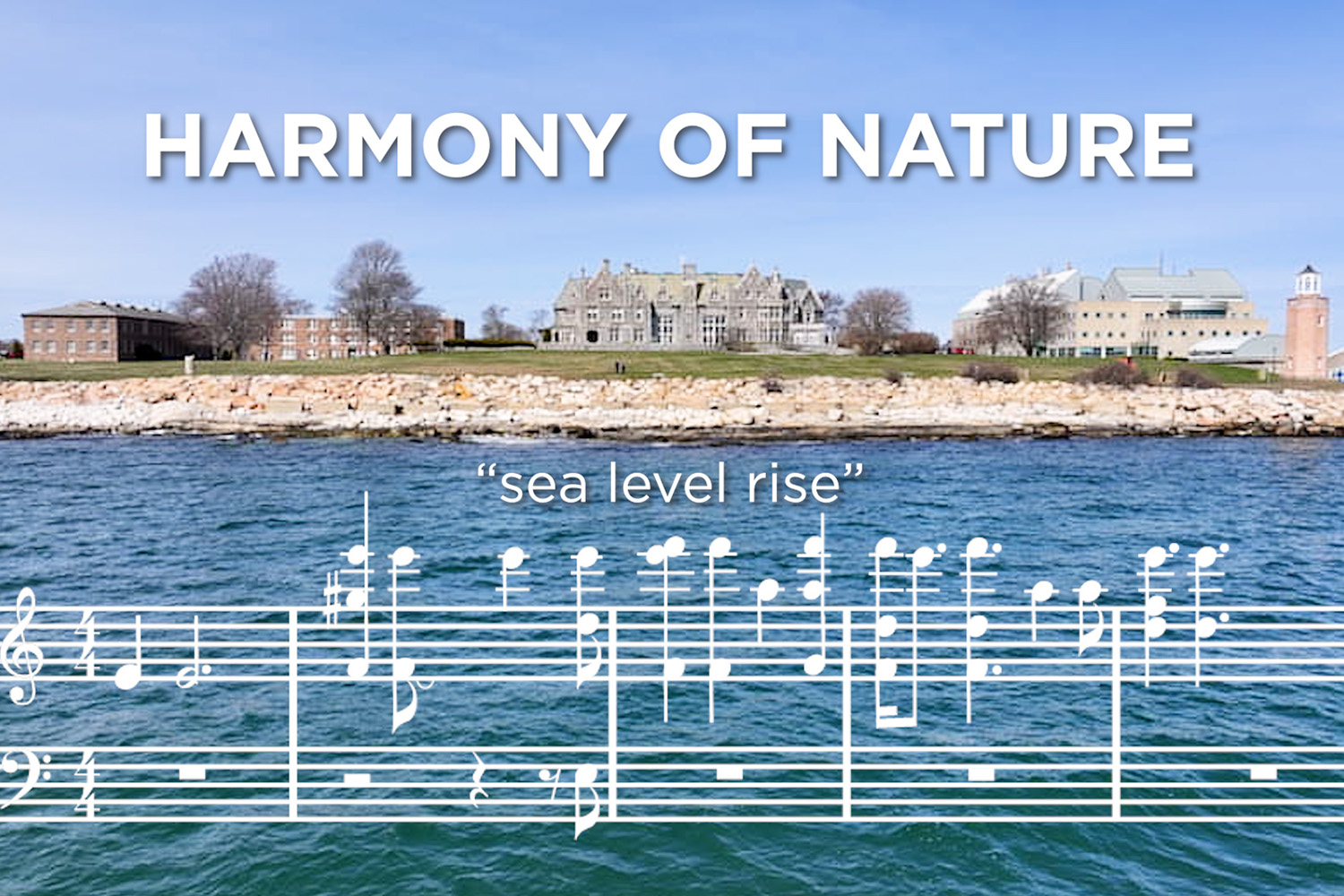Loneke Blackman Carr joined the Department of Nutritional Sciences this past fall as an assistant professor of community and public health nutrition. Her research explores racial, ethnic and gender health disparities and ways to tailor behavioral weight control interventions, such as diet and exercise, to populations with greater rates of obesity, diabetes, hypertension and cardiovascular diseases to improve their health outcomes. Her latest published research examined ways to make physical activity more culturally relevant for black women to achieve better weight-loss results.
Blackman Carr is also exploring ways to incorporate social media and other technologies to improve health, creating opportunities to collaborate with colleagues across the University. She is an affiliate faculty member in the UConn Center for mHealth and Social Media, which is a part of the Institute for Collaboration on Health, Intervention and Policy, and the Rudd Center for Food Policy and Obesity. Here is what she said in an interview.
Where did you get your degrees?
My undergraduate degree was from Cornell University. I was in the College of Agricultural and Life Sciences and studied nutritional sciences. I went on for a master’s at Syracuse University in nutrition science and dietetics. After all that icy cold tundra, I wanted something new and I applied to anything below the Mason-Dixon Line. The University of North Carolina at Chapel Hill is where I did my Ph.D., which was also in nutrition. It was within a school of public health, so it was a little bit different of a spin on the science and how it gets applied. Then I did a post-doc for a little under two years at Duke University.
What did you do before you came to UConn?
My postdoctoral training at Duke was focused on the religion and spirituality aspects of health in black populations in the US. Our question was, “How do we look at heart disease risk and factors that fold into that, like obesity, hypertension, depression and diabetes?” I was working on that project with my advisor, Keisha Bentley-Edwards, who was the PI.
I was really the obesity and physical activity brain on that project. It was asking, “If we look at blacks within the US by religious denomination, do we see differences in risk factors that could predict their chances for heart disease?” In the obesity realm, we didn’t see anything initially looking across denominations, but we found something really interesting looking at how often black men engaged with the church, whatever denomination they were. If they engaged nearly every day, they had about double the obesity risk compared to men who rarely, if ever, were engaged in the church. It turned into media headlines and we didn’t expect it to draw all this buzz. That’s really the fun part about research is when it actually gets to a larger public dialogue.
What will your work here at UConn focus on?
Coming away from Duke, where my work was really data focused, I’m coming back to the people-focused intervention work that I was really trained to do at UNC-Chapel Hill. My research here will really focus predominately on black women in Connecticut. There’s great ethnic diversity in this state that I hope to explore more in my work, which will continue to focus on finding the weight-loss approach or intervention for black women to get the best outcomes because right now they’re not.
We find consistent disparities between black and white women in how much weight-loss is produced through both groups in our standard interventions, so the question remains, “What do our interventions need to do to produce maximally beneficial outcomes for black women that will translate into optimal health for them, both in the short-term and the long-term?” My work will focus on interventions such as diet, nutrition and physical activity.
I do mostly group-based interventions, but I like to blend the face-to-face with social media and technology-mediated interventions. I see myself using more smartphone-delivered interventions. It would reduce that burden of people having to appear in-person and also reach people who might not be interested or even able to logistically join in-person intervention sessions, so social media will definitely be a part of my work.
Name one aspect of your work that you really like.
The thing that lingers after a study is done and the data is collected and analyzed is the connection with people. I can look at a data point or an ID number and remember the story behind that person and where they were when they began and what their transition was until the end of our official time together. During my time in North Carolina occasionally you’d see someone at the grocery store and while I can’t approach them, they often see me and come over to say, “Oh hey, I’m doing great.” It’s that personal connection to a personal story of health that persists after the hard science is done.
Is there anything else you would like us to know about you?
I am a registered dietitian, but I love to eat. I like staying active because it energizes me. I’m always looking for new things to do in Connecticut as I get to know this state.
I want the UConn community to know I’m here and open to conversations about the health of black women and folks in Connecticut and other broader spaces to focus on nutrition and physical activity and to talk about weight in a meaningful way. I really want to focus on how to leverage interactions between women to optimize their health.
My nutrition background gave me that hard science foundation to understand what’s going on at the cellular level. Since undergraduate school I’d say I’ve been building from the cell to society level. At this stage, I find myself community-rooted and wanting to be community-relevant and acknowledging that my science is people-focused and I work with whole humans at this point in my interventions, so that public health orientation is living in and breathing in my work now.
One of my personal goals as a scholar is to have public discourse because it is so easy for what we learn to stay within our fields of discipline and not get translated or even shared with the public and most of the time it’s taxpayer dollars that’s funding this great research. The public certainly should hear about what we do and I consider it a part of my duty as a scholar to tell them what I’m doing and sharing. We also need to say what it really means because we if we just talk in science terms then that’s not helpful. We need to answer: “What’s the point? What’s the takeaway here? What should I now know about my health?”



